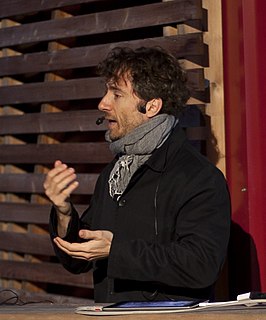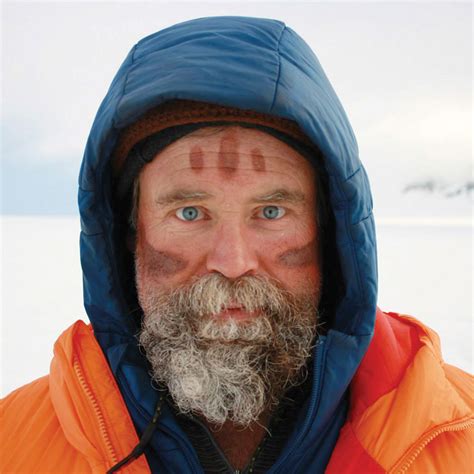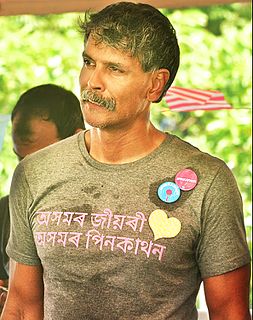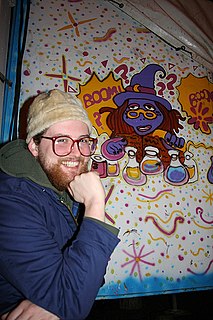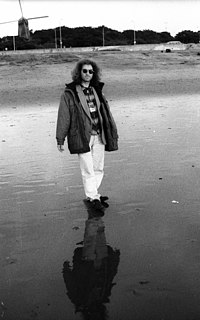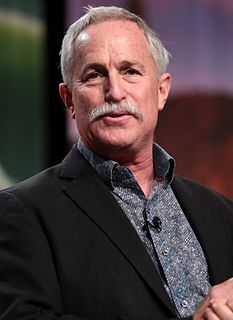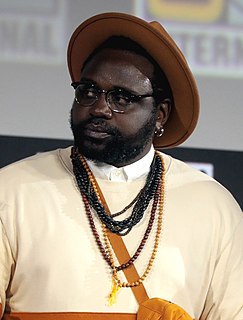A Quote by Thomas Heatherwick
I'm in love with cities. I find them amazing, the quiet co-ordination of thousands of people, going about what we're trying to do, and that organism of the city nurturing human aspiration, and the actual city fabric itself being a special thing rather than just infrastructure.
Related Quotes
All cities have one key resource: the special abilities of the people who live in them. You just have to find out what they are. In the Australian city of Adelaide, for example, which is overshadowed by Sydney and Melbourne, I discovered a number of experts in the penal system. I advised them to work with these special skills.
On numerous visits to Manhattan, I have found myself poking around the city trying to find a moment of quiet and once located a hint of it in Central Park during a windless, late-night snowfall. There I stood absolutely still in the lemon glow of the city, a sky full of snow. The city still roared from all sides, a thousand noises compressed down to just one. I counted that distant, mild roar as quiet, a welcome relief from the more pressing noises of the daytime city.
It was if the city knew about Percy's dream of Gaea. It knew that the earth goddess intended on razing all human civilization, and this city, which had stood for thousands if years, was saying back at her: You wanna dissolve this city, Dirt Face? Give it a shot. In other words, it was the Coach Hedge of mortal cities- only taller.
That the sight of people attracts still other people, is something that city planners and city architectural designers seem to find incomprehensible. They operate on the premise that city people seek the sight of emptiness, obvious order and quiet. Nothing could be less true. The presences of great numbers of people gathered together in cities should not only be frankly accepted as a physical fact... they should also be enjoyed as an asset and their presence celebrated.
I think living in Baltimore and being a part of the community and trying to be part of as many communities as possible within the city, the best thing that anyone can do in Baltimore is just to be a part of it and contribute to it and to not see it as...A lot of people from outside the city see this city for its blight and I feel like people who live within the city do the opposite and see this city for what defines it as, in my mind, the most beautiful place to live.
...our cities of the present lack the outstanding symbol of national community which, we must therefore not be surprised to find, sees no symbol of itself in the cities. The inevitable result is a desolation whose practical effect is the total indifference of the big-city dweller to the destiny of his city.
Living in cities is an art, and we need the vocabulary of art, of style, to describe the peculiar relationship between man and material that exists in the continual creative play of urban living. The city as we imagine it, then, soft city of illusion, myth, aspiration, and nightmare, is as real, maybe more real, than the hard city one can locate on maps in statistics, in monographs on urban sociology and demography and architecture.
By rebuilding transportation so that you're not owning this thing that just sits there all the time, you get to rebuild cities in the process. If we do this right as a country, we have a chance to re-create our cities with the people, rather than cars, at the center. Our cities today have been built for the car. They've been built for car ownership. Imagine walking around in the city where you don't see any parking lots and you don't need that many roads.
From a business perspective, the question related to cities and sustainability is clear and compelling: can you have a healthy company in an unhealthy city? Arguably, no. Companies need healthy cities to provide reliable infrastructure, an educated and vital workforce, a vibrant economy, and a safe and secure environment to survive and thrive. Business executives have a lot to learn from cities, and a lot to contribute, and this book shows the way, chronicling the successes and the lessons learned about what it takes to make a city healthy, in every sense of the word.
